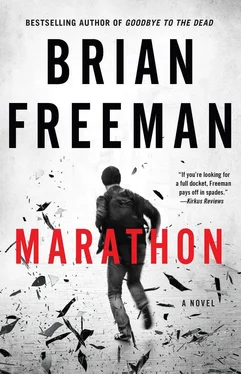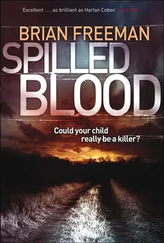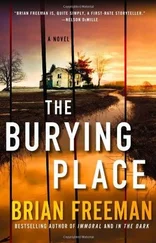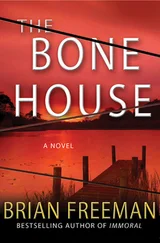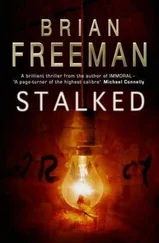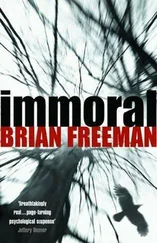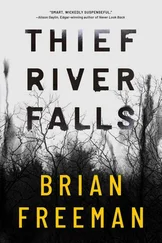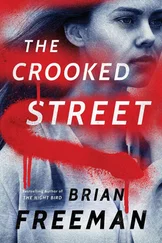“Yes, it is.”
“I’d like you to serve as our liaison with the Duluth Police during the investigation. We’ll be in charge, but they know the terrain.”
“Thank you, sir. Yes, absolutely.”
“Normally, I’d use our resident agency in Duluth, but we lost our supervisory agent there after Special Agent Harrison passed away last month.”
“I understand,” Gayle told him.
“The lieutenant in charge of major crimes in the Duluth Police is a man named Jonathan Stride. He’s good. He has a strong team.”
“I look forward to working with them,” Gayle said.
“Be ready to leave in thirty minutes.”
“Yes, sir.”
Gayle stood up, but before she could leave, Maloney stopped her with the smallest motion of his hand. “One more thing, Agent Durkin. The eyes of the country are on us. Whatever we do will be scrutinized and second-guessed. It’s very possible that politicians may get ahead of the facts in this case, but the only thing I care about are the facts. Understood?”
“Yes, sir.”
“No matter what we uncover about the people who did this, or their motives, I will not tolerate the slightest unprofessional behavior from anyone on my team.”
“Of course. I appreciate the opportunity.”
“You know why I’m telling you this, don’t you? I want assurances that you’ll be able to separate any personal feelings you may have from this investigation. Because if you have any doubts about that, say so now, and I’ll find someone else to do this.”
Gayle knew he would have to bring this up, and she knew what he expected her to say. She had no doubts. She had no emotions. Or if she did, she would set them all aside to solve the case. That was how the FBI worked.
“You don’t have to worry about me, sir,” Gayle told him.
“Good.”
Gayle left the office, exhilarated to be back in the field. It was what she’d wanted for a year. In truth, she did have doubts about whether she could handle the case with professional detachment. She did have emotions. When she first heard about the bomb in Duluth, she’d thought about Ron, and she knew exactly what she felt about the terrorists who’d launched the attack.
She wanted to kill them.
Khan turned his taxi into the driveway of his small home on Vassar Street at three o’clock in the afternoon. They had no garage, so on winter mornings, he had to shovel his cab out from the snow before he drove off to pick up his first fare of the day. He parked on the gravel and sat in the car with his hands still on the wheel. Tall trees soared over his head, full of summer greenness. The rain had stopped, but the ground was wet and shiny with puddles.
The front door of his house flew open.
His wife, Ahdia, burst onto the wooden deck that was lined with geraniums in clay pots. She saw him and clapped both hands over her mouth in relief. She bolted down the three steps and ran to the car. He opened the taxi door, and when he climbed out, she threw her arms around him.
“Khan!” she breathed into his ear. “I thought you were dead. I was so scared. I called, and you didn’t answer! Why didn’t you answer?”
They stood at arm’s length with their hands still entwined. He stared at the face he knew so well. The dark, teasing eyebrows and brown eyes, so vivid against her ivory skin. The mouth that was always laughing at whatever he said. The blooms of her cheeks, pink, puffy, and round. Her bright hijab making a circle around her face. She was small, and to him, she was perfect. A treasure.
“I’m sorry. I went back to help after the explosion, and I lost my phone in the chaos.”
“I can’t tell you all the thoughts that were in my head.”
“I know. There were people stranded everywhere. I wanted them to get home, so I made several trips in the cab. I’m sorry you were worried.”
Ahdia dragged him toward the house, but her eyes never left him. She wore a cherry-red sweater and long black skirt. “Come inside. I’ll make you tea.”
She led him up the old porch steps, which shifted unsteadily under their feet. Their house was small, nothing more than a tiny box with a pointed roof, but it felt like a castle to him. The lawn grew fast and always felt overgrown. They lived in a quiet neighborhood, on a street that dead-ended in deep woods. They’d bought the house a year ago. Some of their new neighbors ignored them; some had welcomed them with strange Minnesota dishes like green bean casserole. Others, the fearful ones, whispered or stared when Khan drove by in his cab, but he smiled at them anyway. He was a happy man.
But not today.
Inside, sandalwood incense relaxed him. He dropped into the worn armchair near the front window. A yellow embroidered tapestry took up most of the wall beside him. Whenever he saw it, he thought of his mother, who had made it over a stretch of months. She was long gone. So was his father. And his brother, who’d died in the riot in Lahore. None of them had made it out of Pakistan.
Ahdia brought him tea in a blue ceramic mug, which he cupped between his palms. His wife curled up on the wooden floor at his feet and lay her head against his knee.
“How is Pak?” he asked.
“He’s sleeping.”
Khan smiled. “Impossible.”
His four-year-old son, with his mop of black hair, had limitless energy. He could already run like the wind, and he had astonishing grace on the soccer field. Khan was sure that Pak would be a star player.
“Tell me what happened,” Ahdia said. “People outside were talking. They said there was a bomb.”
Khan nodded. “Just a minute earlier, I’d been standing right there.”
“Were you hurt?”
“No. I’m fine.”
“Did anyone die?”
“I think so. That’s what I heard.”
Ahdia took his hand. “Awful. So awful.”
Khan stared down at his wife. Yes, it was awful, but he knew the troubles in their community were just beginning. “These are going to be dark days for us, you know.”
“I know.” She added after a pause, “Did you find Malik? Was he there?”
“I never saw him,” Khan replied. He sipped his tea, but he had no thirst for it now. He took off his silver glasses and wiped away the smudges with the tail of his shirt.
“So maybe he wasn’t involved.”
“I hope that’s true.”
Ahdia stood up and folded her arms across her chest. “You should rest, Khan. You look exhausted.”
“I wouldn’t be able to sleep. I’m going to take a walk to put this all out of my head.”
She bent down and kissed him. “All right, but don’t be long. Pak will be up soon. He’ll want to kick the ball with you.”
Khan got up and went outside into the damp afternoon. He passed his yellow cab, where he spent twelve hours every day. Later, he would wash it. The rain had left it dirty, and he was fanatical about keeping a clean cab. He wandered into the empty street, which was quiet except for the songs of birds and a hushed wind. Where the road ended, he made his way onto a dirt trail leading into the woods. The silence of this place was a blessing. Growing up in Lahore, he’d never known what silence was. There was tumult everywhere, people shouting, animals baying, cars and bicycles honking horns or ringing bells as they clamored for space in the street. He missed very little about his homeland, where his memories were mostly of hunger and loss. He didn’t always understand America, but he was proud to be American.
As a fourteen-year-old orphan, he’d been brought to Chicago by his uncle. Khan was grateful to have been rescued, but his uncle’s children had resented him and wanted nothing to do with him. Instead, his friends became his family, most of them young immigrants like him. He didn’t have money for college, so at eighteen, he drove a cab instead. His life followed a strict but sterile routine. Drive all day, pray, go to the mosque, share an apartment with four other ex-Pakistanis with similar lives. Looking back on those days, he understood how young men could go wrong. He wasn’t starving, but he’d had no clear purpose, and the purposeless life yearned for any kind of meaning.
Читать дальше
